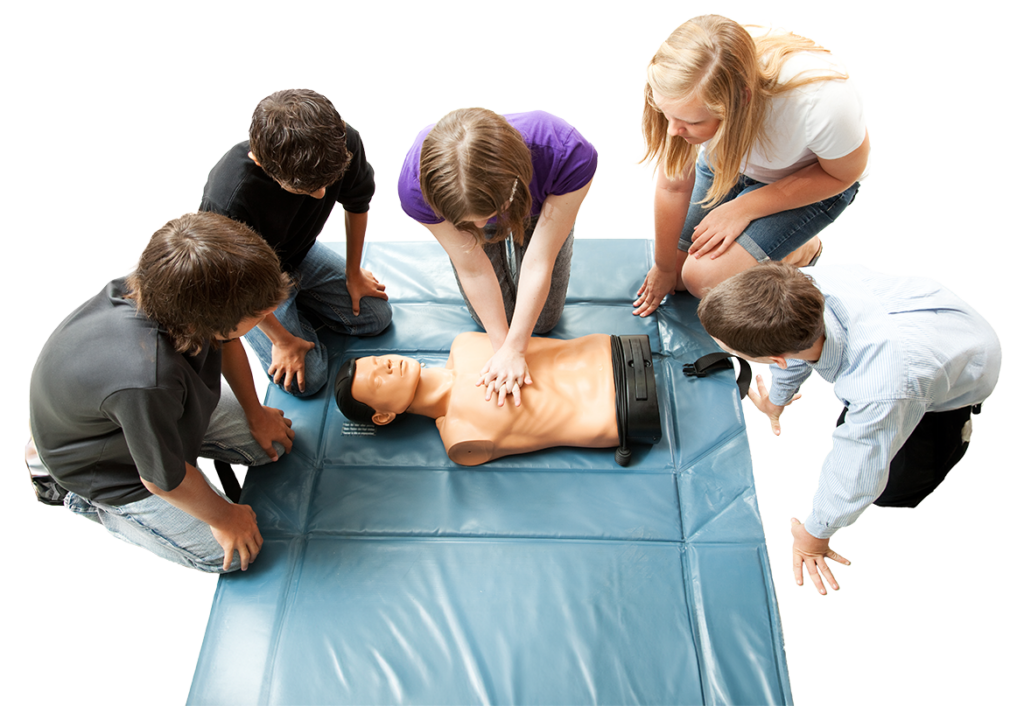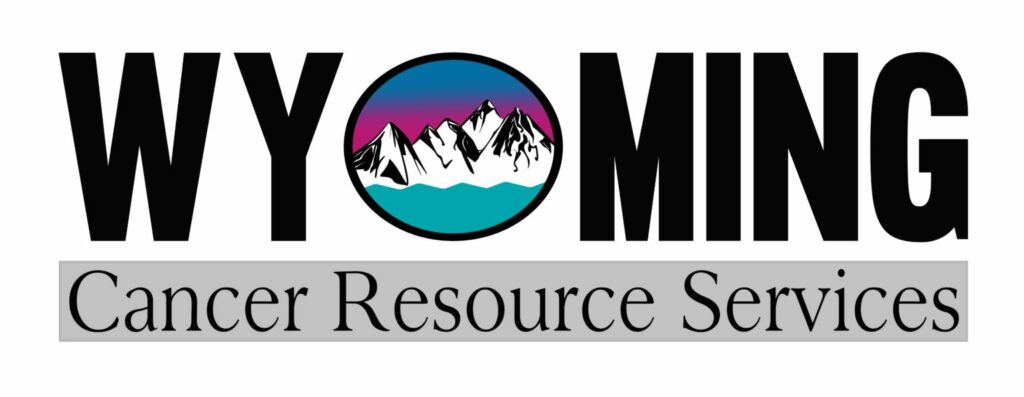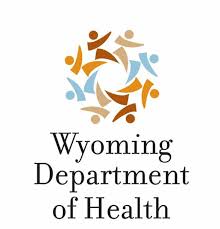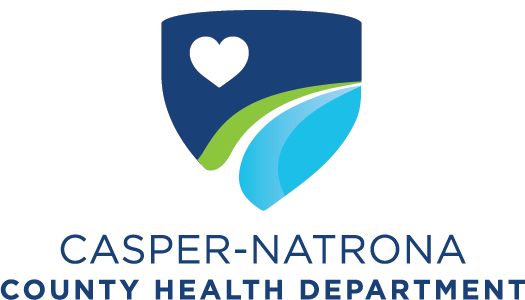The Casper-Natrona County Health Department provides resources and education to the community through various grant opportunities. These classes, resources and education promote safety, wellness and improved quality of life. All services through our grant programs are available to members of our community at low to no cost.
Quick Navigation
What is CPR?
CPR – or Cardiopulmonary Resuscitation – is an emergency lifesaving procedure performed when the heart stops beating
CPR Courses offered through
Casper-Natrona County Health Department
Whether you are a healthcare provider, require regulatory safety training for work, or are seeking to take the important step of learning CPR to protect your loved ones, we have training that is suitable for you.
First Aid CPR AED Course
The American Heart Association’s HeartSaver First Aid CPR AED course provides hands-on learning on how to perform high quality CPR skills on adults, children, and infants. Participants will learn how to use an automated external defibrillator (AED) and abdominal thrusts. The first aid modules include bleeding control, trauma injuries, and environmental emergencies. This class is for participants with limited or no medical training: teachers, daycare providers, senior care centers, coaches, river-raft guides, or foster parents, etc. The HeartSaver certification is valid for two years and the cost of the book is included in the price of the class. This course is designed to meet OSHA requirements. Cost for class is $55.
Heartsaver® First Aid CPR AED Training
The AHA’s Heartsaver First Aid CPR AED course trains participants to provide first aid, CPR, and use an automated external defibrillator (AED) in a safe, timely, and effective manner. This course reflects science and education from the American Heart Association Guidelines Update for CPR and Emergency Cardiovascular Care (ECC).
Who Should Take This Course?
The AHA’s Heartsaver First Aid CPR AED course is designed for anyone with little or no medical training who needs a course completion card for their job, regulatory (e.g., OSHA), or other requirements, or anyone who wants to be prepared for an emergency in any setting.
What Does This Course Teach?
- First aid basics
- Medical emergencies
- Injury emergencies
- Environmental emergencies
- Preventing illness and injury
- Adult CPR and AED use
- Opioid-associated life-threatening emergencies
- Optional modules in Child CPR AED and Infant CPR
Basic Life Support Course
The Basic Life Provider Initial course is for first-time participants or those participants whose certification cards has expired. This course is video-based and instructor-led course designed for healthcare professionals and first responders. Skills reviewed in this class include: one and two-rescuer CPR – for adults, children, and infants; team CPR is taught and practiced, and abdominal thrust skills are taught for all populations. The initial class is taught in 4 hours. Cost for class is $55.
The AHA’s BLS course trains participants to promptly recognize several life-threatening emergencies, give high-quality chest compressions, deliver appropriate ventilations, and provide early use of an AED. This course reflects science and education from the American Heart Association Guidelines Update for CPR and Emergency Cardiovascular Care (ECC).
Who Should Take This Course?
The AHA’s BLS course is designed for healthcare professionals and other personnel who need to know how to perform CPR and other basic cardiovascular life support skills in a wide variety of in-facility and prehospital settings.
What does this course teach?
- High-quality CPR for adults, children, and infants
- The AHA Chain of Survival, specifically the BLS components
- Important early use of an AED
- Effective ventilations using a barrier device
- Importance of teams in multirescuer resuscitation and performance as an effective team member during multirescuer CPR
- Relief of foreign-body airway obstruction (choking) for adults and infants

Wyoming AETC (AIDS Education and Training Center)
The Wyoming AIDS Education and Training Center (WyAETC) is one of the state/regional HRSA-funded AIDS education training centers in the United States. The Casper-Natrona County Health Department is honored to house the WyAETC under its roof via a cooperative agreement with the University of Washington. The WyAETC accepts requests for HIV, hepatitis, and pre-exposure prophylaxis (PrEP) education programs for healthcare providers and clinical faculty, with educators able to travel statewide.
Expedition
The Casper-Natrona County Health Department’s Communicable Disease Program offers services designed to reach those who need them most. These services include health education and outreach testing events for HIV, Hepatitis, and Sexually Transmitted Infections (STIs). We are committed to providing comprehensive sexual health education for both adults and adolescents in the community, equipping them with up-to-date and accurate information to make informed decisions about their sexual health and reduce their risks. Our health educators can offer one-time classes upon request or establish ongoing sessions with various community resource groups in Natrona County. For more information, please contact us.
The Casper-Natrona County Health Department is the coordinator of Wyoming Cancer Resource Services for Region II (Carbon, Converse, Natrona, and Niobrara Counties).
The program includes:
- Education and awareness about cancer prevention programs and services as well as related cancer risk factors.
- Promotion of early detection of cancer at intervals recommended by national screening guidelines
- Referral of eligible participants to state-funded cancer screening programs
- Patient navigation for Wyoming residents needing local, regional, state and national cancer information and resources.
- Filling service gaps utilizing resources within the communities in the region.
All services provided by CNCHD with the Wyoming Cancer Resource Services are free and confidential.
Cancer Prevention Programs
The Casper-Natrona County Health Department provides patient navigation for people needing cancer screening, treatment, or survivorship assistance. Travel vouchers may be available for patients needing care outside of Natrona County. Vouchers are awarded based on client’s income and on a first-come-first-serve basis. Contact us at (307) 235-9340 if you are in need of patient navigation or travel assistance.
The Casper-Natrona County Health Department is offering patient navigation and case management for cancer survivors who wish to continue to improve their health and wellness after their cancer treatment. For more information, call us at (307) 235-9340.
For information about FREE cancer screening programs that include screening for colorectal cancer (colonoscopy, FIIT kits), breast cancer (mammography, other services), and cervical cancer (Pap screening and other follow-up services), please CLICK HERE: health.wyo.gov/cancer
Please contact us to help you enrolll in the FREE cancer screening programs by calling the Casper-Natrona County Health Department at (307) 235-9340.
Other information about Wyoming Cancer Resources can be found here: health.wyo.gov/public health/cancer-andchronic-disease-prevention-unit/cancer/wcrs
The Casper-Natrona County Health Department is partnering with City of Casper and other agenices to provide bulk sunscreen dispenser for the public in locations where sun exposure is likely (i.e., pools, public gathering locations, etc). If you are interested in using or checking out a free sunscreen dispenser for your event, visit http://health.wyo.gov/publichealth/cancer-and-chronic-disease-prevention-unit/cancer/sunsafety/ or contact us at 307-235-9340.
Regardless of whether you have other risk factors, such as family history, reducing your exposure to ultraviolet (UV) rays can help keep your skin healthy and lower your chances of getting skin cancer in the future. Most people get at least some UV exposure from the sun when they spend time outdoors. Making sun protection an everyday habit will help you to enjoy the outdoors safely, avoid getting a sunburn, and lower your skin cancer risk.
- Stay in the shade, especially during midday hours.
- Wear clothing that covers your arms and legs.
- Wear a hat with a wide brim to shade your face, head, ears, and neck.
- Wear sunglasses that wrap around and block both UVA and UVB rays.
- Use sunscreen with a sun protection factor (SPF) of 15 or higher, and both UVA and UVB (broad spectrum) protection.
Additionally, avoiding UV exposure in tanning beds, performing regular skin checks, and consulting your physician whenever you have a concern can reduce your risk of developing skin cancer.
What is radon?
Radon is a radioactive gas released from the normal decay of the elements uranium, thorium, and radium in rocks and soil. It is an invisible, odorless, tasteless gas that seeps up through the ground and diffuses into the air. In a few areas, depending on local geology, radon dissolves into ground water and can be released into the air when the water is used. Radon gas usually exists at very low levels outdoors. However, in areas without adequate ventilation, such as underground mines, radon can accumulate to levels that substantially increase the risk of lung cancer. Radon is present in nearly all air. Everyone breathes in radon every day, usually at very low levels. However, people who inhale high levels of radon are at an increased risk of developing lung cancer.
How can people know if they have an elevated level of radon in their homes?
Testing is the only way to know if a person’s home has elevated radon levels. Indoor radon levels are affected by the soil composition under and around the house, and the ease with which radon enters the house. Homes that are next door to each other can have different indoor radon levels, making a neighbor’s test result a poor predictor of radon risk. In addition, rain or snow, barometric pressure, and other influences can cause radon levels to vary from month to month or day to day, which is why both short- and long-term tests are available.
Short-term detectors measure radon levels for 2 days to 90 days, depending on the device. Long-term tests determine the average concentration for more than 90 days. Because radon levels can vary from day to day and month to month, a long-term test is a better indicator of the average radon level. Both tests are relatively easy to use and inexpensive. A state or local radon official can explain the differences between testing devices and recommend the most appropriate test for a person’s needs and conditions.
The U.S. Environmental Protection Agency (EPA) recommends taking action to reduce radon in homes that have a radon level at or above 4 picocuries per liter (pCi/L) of air. About 1 in 15 U.S. homes is estimated to have radon levels at or above this EPA action level. Scientists estimate that lung cancer deaths could be reduced by 2 to 4 percent, or about 5,000 deaths, by lowering radon levels in homes exceeding the EPA’s action level.
The EPA has more information about residential radon exposure and what people can do about it in the Consumer’s Guide to Radon Reduction, click here to view https://www.epa.gov/sites/default/files/2016-12/documents/2016_consumers_guide_to_radon_reduction.pdf
Test Your Home
To receive a FREE radon test kit (1 per household) for your home, visit https://states.aelabs.com/#/wy or contact us at 307-577-9340.
Cervical Cancer Prevention & HPV Vaccine
Human papillomavirus (HPV) is a very common virus that can lead to cancer. Nearly one in four people are currently infected with HPV. Over 30,000 people in the United States each year are affected by cancer caused by HPV infection.
HPV vaccination provides safe, effective, and lasting protection against the HPV infections that most commonly cause cancer.
The Casper-Natrona County Health Department offers HPV vaccination. For more information, please seek our Immunization Page.
HPV vaccination is recommended for preteen girls and boys at age 11 or 12 years. All preteens need HPV vaccination so they can be protected from HPV infections that cause cancer.
- Teens and young adults who didn’t start or finish the HPV vaccine series also need HPV vaccination.
- Teens and young women can get HPV vaccine until they are 27 years old and young men should get HPV vaccine until they are 22 years old.
- Teens and young men who have sex with other men or who have weakened immune systems should get HPV vaccine until they are 27.
- Transgender individuals should also get HPV vaccine until they are 27.
CDC recommends that 11- to 12-year-olds receive two doses of HPV vaccine at least six months apart to protect against cancers caused by human papillomavirus (HPV) infections.
- The first dose is routinely recommended at 11-12 years old.
- The second dose of the vaccine should be administered 6 to 12 months after the first dose.
- Vaccination with the two-dose series can be started at age 9 and through age 14.
Teens and young adults who start the series later, at ages 15 through 26 years, need three doses of HPV vaccine to protect against cancer-causing HPV infection.
- Adolescents aged 9 through 14 years who have already received two doses of HPV vaccine less than 5 months apart, will require a third dose.
- Three doses are recommended for people with weakened immune systems aged 9-26 years.
Tell your doctor about any severe allergies. Some people should not get some HPV vaccines, including:
- People who have ever had a life-threatening allergic reaction to any ingredient of an HPV vaccine, or to a previous dose of HPV vaccine.
- People who have an allergy to yeast (Gardasil and Gardasil 9).
HPV vaccines are safe for children who are mildly ill – for example, with a low-grade fever of less than 101 degrees, a cold, runny nose, or cough. People with a moderate or severe illness should wait until they are better.
Two HPV vaccines have been licensed by the U.S. Food and Drug Administration (FDA).
- Gardasil (Merck) is a quadrivalent HPV vaccine (4vHPV) that protects against HPV types 6, 11, 16, and 18.
- Gardasil-9 (Merck) is a nine-valent HPV vaccine (9vHPV) that protects against HPV types 6, 11, 16, 18, 31, 45, 52, and 58.
Both HPV vaccines protect against the two HPV types, 16 and 18, that cause most HPV cancers.
HPV vaccination works extremely well. Clinical trials showed the vaccines provided close to 100% protection against precancers and, for Gardasil and Gardasil 9, genital warts.
- Since the vaccine was first recommended in 2006, there has been a significant reduction in HPV infections.
- Research has also shown that fewer teens and young adults are getting genital warts.
- In other countries such as Australia where there is higher HPV vaccination coverage, HPV vaccine has also reduced the number of cases of precancers of the cervix in young women in that country.
- Also, genital warts have decreased dramatically in young adults in Australia since the HPV vaccine was introduced.
HPV vaccine offers long-lasting protection against HPV infection and HPV disease
- 10 years of data show that HPV vaccination provides long-lasting protection.
- There is no evidence to suggest that HPV vaccine loses the ability to provide protection over time.
Vaccines, like any medicine, can have side effects. Many people who get HPV vaccine have no side effects at all. Some people report having very mild side effects, like a sore arm from the shot.
The most common side effects of HPV vaccine are usually mild, and include:
- Pain, redness, or swelling in the arm where the shot was given
- Fever
- Headache or feeling tired
- Nausea
- Muscle or joint pain
Brief fainting spells and related symptoms (such as jerking movements) can happen after any medical procedure, including vaccination. Sitting or lying down when getting a shot and staying in that position for about 15 minutes after a vaccination can help prevent fainting and injuries caused by falls.
On very rare occasions, severe (anaphylactic) allergic reactions may occur after vaccination. People with severe allergies to any component of a vaccine should not receive that vaccine.
For more information about the HPV vaccine, please visit this website: https://www.cdc.gov/hpv/vaccines/index.html
Wyoming Cancer Coalition (WYCC)
The WYCC is a group of nearly 200 Wyoming residents and supporters working together to promote and implement the data-driven Wyoming Cancer Plan throughout the state. The Wyoming Cancer Plan outlines goals and action steps that people in Wyoming can take to reduce the burden of cancer in the state.
Our Mission: To develop and implement a collaborative and comprehensive approach to address cancer prevention, early detection, access to healthcare, diagnosis, and treatment, and quality of life services to lessen the impact of cancer in Wyoming.
Our Purpose: To foster statewide collaboration efforts to better implement comprehensive cancer control in Wyoming, and to serve as a vehicle to coordinate the improvement of cancer prevention and control activities throughout the state.
For more information visit www.wyomingcancercoalition.org



The Community Prevention Program positively impacts the health outcomes of the community as a whole, rather than focusing on individual health outcomes. The Prevention Program conducts activities designed to prevent the use, misuse, or abuse of tobacco, alcohol, and controlled substances, and activities designed to prevent suicide. This is achieved largely through community partnerships, collaboration, and engagement to identify and address the environmental factors that contribute to substance abuse and suicide problems in Natrona County.
To find out more go to:

Do you want to learn powerful strategies to take control of your health and get relief from pain, fatigue, and other symptoms?
The Casper-Natrona County Health Department is now offering Healthy U Cancer, Healthy U Diabetes, and Healthy U Chronic Disease workshops. These are free, six-week workshops for adults with chronic health conditions and their friends, family, and caregivers.
To see or sign up for available workshops, please visit:
Blood Pressure Monitoring Program
Managing your blood pressure is an important step in protecting your heart health. The Casper-Natrona County Health Department offers a Blood Pressure Machine Checkout Program, allowing community members to borrow a blood pressure monitor for at-home use.
How It Works:
- Check Out a Monitor – Borrow a blood pressure machine for a designated period.
- Track Your Readings – Monitor your blood pressure at home and log your results.
- Improve Your Health – Regular monitoring can help you and your healthcare provider manage your heart health effectively.
This program is available at no cost to participants. Contact us today to learn more about how you can check out a blood pressure monitor!
CredibleMind:
The One-Stop Shop for Mental Well-being Resources
CredibleMind is the free online platform that brings together expert-rated and vetted videos, podcasts, apps, online programs, books, and articles all in one easy-to-use place.
Confidential, anonymous, and available 24/7, with CredibleMind you can learn new skills, understand your own mental health, take a mental health assessment, and browse our library of thousands of mental well-being resources.
CredibleMind covers over 200 topics including:
- Stress
- Burnout
- Anxiety
- Depression
- Relationships
- Mindfulness
- Resilience
- Coping with Medical Diagnosis
- Time-Management
- Happiness
- Sleep
- Parenting
- Grief and Loss
- Flourishing
- Substance Use
- Aging

Get Started today by signing up and taking a mental health assessment. Some assessments you’ll find on CredibleMind are:
- Is it Job Stress or Burnout?
- What’s your Mental Health Profile?
- How Strong is Your Resilience Network?
- Is Caring of Others Taking a Toll on You?
- Is Your Mind Full or Are You Mindful?
- What’s Your Meditation Style?
By signing up, you will have access to: past assessment results to track improvement over time, your favorite resources, and handpicked CredibleMind resources right to your email!
No matter what you are going through, CredibleMind has resources to help with science-backed evidence you can trust.
